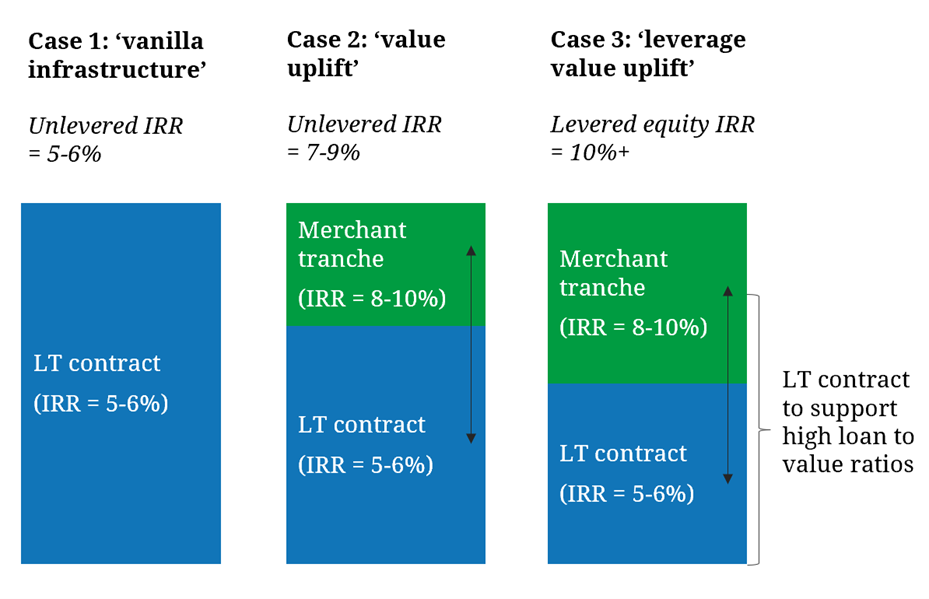Mental Health In Children: Why Investing Early Is Essential

Table of Contents
The Growing Prevalence of Childhood Mental Health Issues
Childhood is a period of significant development, and mental health challenges during these formative years can have profound and lasting effects. Identifying these issues early is crucial.
Identifying Common Challenges
Several common mental health issues affect children, including:
- Anxiety: Child anxiety manifests in various ways, from excessive worry and fear to panic attacks and avoidance behaviors. Symptoms can include difficulty sleeping, irritability, stomach aches, and school refusal.
- Depression: Child depression often presents differently than adult depression. Symptoms might include persistent sadness, loss of interest in activities, changes in appetite or sleep, and feelings of hopelessness. It's crucial to recognize that depression in children isn't simply "sadness"—it's a serious condition requiring professional help.
- Attention-Deficit/Hyperactivity Disorder (ADHD): ADHD symptoms in children include inattention, hyperactivity, and impulsivity. These can significantly impact academic performance, social interactions, and self-esteem.
- Oppositional Defiant Disorder (ODD): ODD is characterized by a persistent pattern of angry, irritable, defiant, and argumentative behavior.
- Autism Spectrum Disorder (ASD): ASD involves challenges with social communication and interaction, as well as restricted, repetitive patterns of behavior, interests, or activities.
The impact of these conditions on a child's academic performance, social skills, and overall development cannot be overstated. Early detection through careful observation and professional assessment is paramount.
The Long-Term Impact of Untreated Mental Health Issues
Failing to address mental health issues in children can have devastating consequences that extend far beyond childhood.
Consequences on Academic Success
Untreated mental health problems are strongly linked to poor academic performance. Children struggling with anxiety, depression, or ADHD may find it difficult to concentrate, complete assignments, and participate in class. This can lead to falling grades, school dropout, and reduced future educational and career opportunities. The correlation between academic success and early intervention in mental health is significant.
Social and Emotional Development
Mental health significantly impacts a child's social and emotional development. Children with untreated mental health conditions may struggle to build and maintain healthy relationships, experience low self-esteem, and have difficulty regulating their emotions. This can lead to social isolation, bullying, and difficulties forming lasting connections. Investing in early intervention directly addresses these challenges and fosters healthier social-emotional growth.
Physical Health Implications
The link between mental and physical health is undeniable. Untreated mental health issues in childhood can increase the risk of developing chronic physical health problems later in life, such as heart disease, diabetes, and autoimmune disorders. Promoting mental health awareness in children is therefore crucial for their overall well-being.
The Benefits of Early Intervention in Children's Mental Health
Early intervention in children's mental health is not just beneficial—it's essential. The earlier a problem is identified and addressed, the better the prognosis.
Improved Outcomes with Early Treatment
Early treatment significantly improves the prognosis and reduces the long-term consequences of mental health issues. Early intervention can prevent conditions from worsening, minimize disruptions to a child's life, and enable them to develop healthy coping mechanisms. Child therapy, specifically tailored to a child's age and developmental stage, can be transformative.
Developing Coping Mechanisms and Resilience
Early intervention helps children develop essential coping skills and build resilience to stress. Therapists teach children strategies to manage their emotions, navigate challenging situations, and build self-esteem. This equips them with tools to face future difficulties with greater confidence and adaptability. Stress management for children is a critical component of building resilience.
Strengthening Family Support Systems
Effective treatment involves strengthening family support systems. Parental involvement, coupled with professional guidance, plays a vital role in a child's recovery and ongoing well-being. Mental health professionals can provide education, support, and guidance to families, empowering them to effectively support their child.
Resources and Support for Children's Mental Health
Parents and caregivers seeking help for a child's mental health have access to a range of valuable resources.
Finding Qualified Mental Health Professionals
Finding a qualified child psychologist or child therapist is the first step. You can search online directories, ask your pediatrician for referrals, or contact your insurance provider for a list of in-network providers. It's crucial to find a therapist who specializes in working with children and adolescents.
Utilizing Community Resources
Many communities offer valuable resources such as support groups for children and families affected by mental illness. Online mental health resources, helplines, and advocacy organizations also provide critical support and information.
Investing in your child's mental health is an investment in their future. Learn more about resources for children's mental health today, and make a difference in a young life. Early intervention in addressing mental health in children is crucial for their overall well-being and future success. Don't hesitate to seek professional help if you are concerned about your child's mental health. Numerous resources are available to support you and your child on this journey.

Featured Posts
-
 The Five Biggest Threats To Reform Uks Success
May 03, 2025
The Five Biggest Threats To Reform Uks Success
May 03, 2025 -
 England Womens Nations League Squad Kelly Replaces Injured Players
May 03, 2025
England Womens Nations League Squad Kelly Replaces Injured Players
May 03, 2025 -
 Agenda La Seine Musicale 2025 2026 Tous Les Evenements
May 03, 2025
Agenda La Seine Musicale 2025 2026 Tous Les Evenements
May 03, 2025 -
 Declaration De Macron Sur La Militarisation Potentielle De L Aide A Gaza
May 03, 2025
Declaration De Macron Sur La Militarisation Potentielle De L Aide A Gaza
May 03, 2025 -
 England Women Vs Spain Women Match Preview Prediction And Lineups
May 03, 2025
England Women Vs Spain Women Match Preview Prediction And Lineups
May 03, 2025
Latest Posts
-
 Belgiums Energy Landscape Financing Options For A 270 M Wh Bess Project
May 04, 2025
Belgiums Energy Landscape Financing Options For A 270 M Wh Bess Project
May 04, 2025 -
 Case Study Financing A 270 M Wh Bess In Belgiums Merchant Market
May 04, 2025
Case Study Financing A 270 M Wh Bess In Belgiums Merchant Market
May 04, 2025 -
 Risk Assessment And Mitigation In Financing A 270 M Wh Bess Project In Belgium
May 04, 2025
Risk Assessment And Mitigation In Financing A 270 M Wh Bess Project In Belgium
May 04, 2025 -
 Financial Models For A 270 M Wh Battery Energy Storage System Bess Project In Belgium
May 04, 2025
Financial Models For A 270 M Wh Battery Energy Storage System Bess Project In Belgium
May 04, 2025 -
 Investment Strategies For A 270 M Wh Bess In Belgiums Competitive Energy Market
May 04, 2025
Investment Strategies For A 270 M Wh Bess In Belgiums Competitive Energy Market
May 04, 2025
